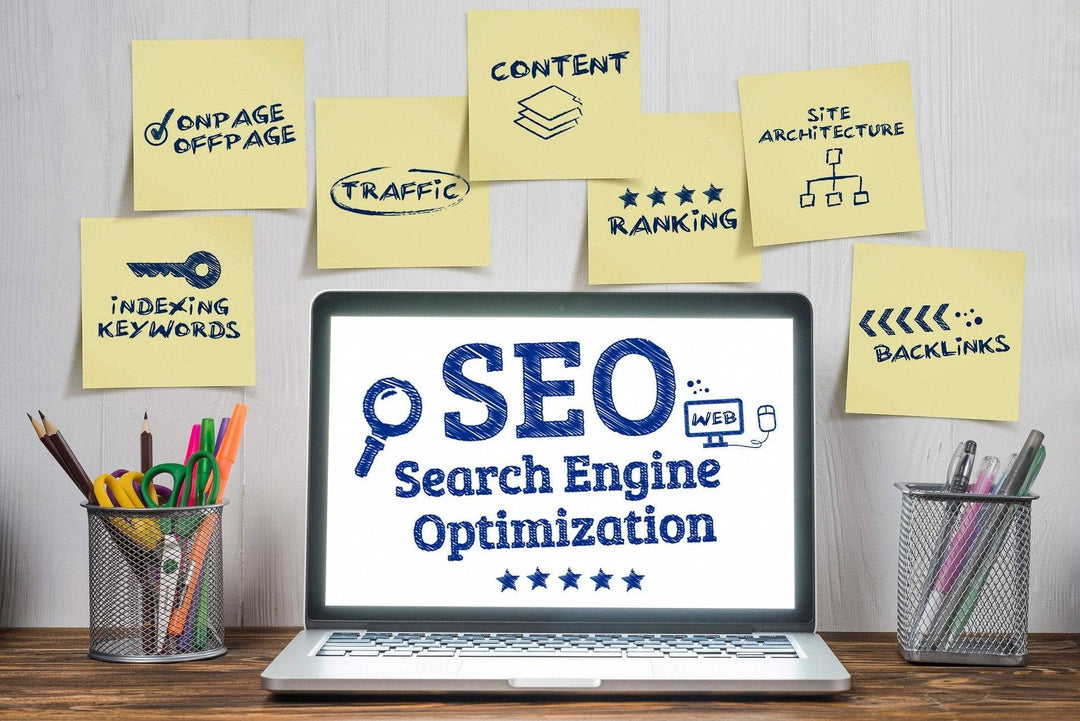It's no secret that organic traffic can be the key to success for any website or blog. After all, it's free, targeted, and converts well. But what if your site isn't currently ranking as high as you'd like in SERPs? Is there anything you can do to improve your position?
Organic results are the web page listings that appear in search engine results pages (SERPs) in response to a query from a user. They are distinguished from paid ads, which appear above or below the organic listings.

There are a number of things you can do to improve your organic position in SERPs, such as optimizing your website for certain keywords, building high-quality backlinks, and creating informative and engaging content. However, it is important to remember that organic results take time to achieve; there is no quick fix for getting better ranking positions. But if you're patient and put in the work, eventually you will see your efforts paying off with improved visibility for your website.
Read More: 10 TIPS TO BETTER OFF-PAGE SEO OPTIMIZATION
What is SERP & Why Should You Care?
In order to understand how to improve your website's SERP positioning, it's important to first understand what SERP is and why it matters.
SERP stands for Search Engine Results Page, and it's the page that appears when someone types a query into a search engine like Google or Bing. The results that appear on SERP can be organic (i.e., not paid for) or they can be paid ads. Either way, appearing on SERP is how you get your website seen by potential visitors who are looking for what you have to offer.
Moreover, there are benefits to improving your organic position, including:
1. You'll attract more targeted traffic. When you rank higher in SERPs, you're more likely to be seen by people who are searching for what you offer. This means that you'll get more targeted traffic, which is essential for generating leads and sales.
2. You'll build trust and credibility. Ranking high in SERPs shows that you're a credible authority in your industry. This helps build trust with potential customers, which can lead to more sales and conversions.
3. You'll get more exposure for your brand. The higher you rank in SERPS, the more exposure your website and brand will get. This can help increase brand awareness and reach, resulting in more traffic and conversions over time.
Relevant Reading: EVERYTHING YOU NEED TO KNOW ABOUT SEO AUDIT PROCESS TO BOOST YOUR GOOGLE RANKINGS
Steps to Improve SERP Positioning
If you want to improve your SERP positioning, focus on increasing the keyword density of your site's content. A search Engine Results Page (SERP) is the page a search engine returns with the results of its search. The main aim of any business should be to get their website as close to the top of the SERP as possible as this will result in more people seeing their website and potentially using their services. Here are 10 strategies you can use to start gaining SERP positioning:
1. Use keyword-rich titles and descriptions
Make sure your website’s title and description contain the keywords you want to rank for. This will help search engines understand what your website is about and index it accordingly.
2. Optimize your website for mobile devices
More and more people are using mobile devices to access the internet. As a result, search engines are now giving preference to websites that are optimized for mobile devices. Make sure your website is responsive and easy to use on a mobile device.
Know more: 8 MOBILE MARKETING STRATEGIES TO DRIVE CONVERSION & LEADS

3. Use social media to your advantage
Social media is a powerful tool that can be used to promote your website and content. Make sure you have an active presence on social media platforms and share links to your website and blog articles regularly.
4. Publish high-quality content
One of the best ways to improve your website’s ranking is by publishing high-quality content that is relevant to your target audience. Write informative blog posts, how-to guides, eBooks, etc., that will help people learn more about your products or services.
5. Conduct keyword research
Before you start creating content, it’s important to conduct keyword research to find out which keywords are being searched for by your target audience. Use these keywords throughout your website and content to make it more visible to search engines.
6. Build backlinks
Backlinks are links from other websites that point to your website. They act as a vote of confidence from other websites and help improve your website’s ranking. You can build backlinks by guest blogging, directories, social media, etc.
7. Make sure your website is fast and responsive
Search engines prefer websites that load quickly and are responsive when users interact with them. Make sure your website is optimised for speed and performance by using a good quality hosting provider and using caching techniques.

8. Use Google Search Console
Google Search Console is a free tool provided by Google that allows you to track your website’s performance in search results. It also provides insights into how Google crawls and indexes your website so you can make necessary changes if needed. Using this tool can help you identify any issues that may be affecting your ranking in the search results.
9. Monitor your competitors
It’s important to keep an eye on what your competitors are doing so you can stay ahead of them in the SERP rankings. Keep track of their SEO tactics, backlink profile, social media activity, etc., so you can adapt and improve upon them.
10 . Hire an SEO expert
If you want to see real results from your SEO efforts, then it’s worth hiring an experienced SEO expert who can help you optimize your website and content for the search engines. They will also be able to provide valuable insights into how you can further improve your ranking in the SERP.
Recommended Reading: TOP 6 STRATEGIES TO OPTIMIZE YOUR WEBSITE FOR ZERO-CLICK SEARCHES
Start Optimizing Your Website for Search Engine Positioning
If you want to improve your organic position in SERPs, make sure you're producing high-quality content that's relevant to your target audience. Invest in keyword research to identify the right keywords to target, and structure your content around those keywords. Promote your content through social media and other channels, and reach out to influencers in your industry to get them to share your content. Finally, make sure your website is optimized for search engine ranking factors so that Google can index and rank your content correctly.
Want to optimize your website for SERP positioning? Get in touch with our experts in eComIntegrate.
FAQs About SERP Positioning

Now that you know all about SERP positioning and how it can benefit your business, you probably have some questions. Here are answers to some frequently asked questions about SERP positioning.
Q: What is the best way to improve my SERP position?
A: There is no one-size-fits-all answer to this question, as the best way to improve your SERP position will vary depending on your business and your goals. However, some common strategies for improving SERP position include optimizing your website for SEO, creating high-quality content, and building links to your site.
Q: How long does it take to see results from SERP positioning?
A: Again, there is no easy answer to this question. The time it takes to see results from SERP positioning will depend on many factors, including the competitiveness of your industry and the strategies you're using. However, if you're taking steps to improve your SERP position, you should start seeing results within a few months.
[nerdy-form:11564]






Leave a comment